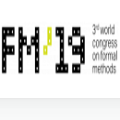Recommender System (RS) is a hot area where artificial intelligence (AI) techniques can be effectively applied to improve performance. Since the well-known Netflix Challenge, collaborative filtering (CF) has become the most popular and effective recommendation method. Despite their success in CF, various AI techniques still have to face the data sparsity and cold start problems. Previous works tried to solve these two problems by utilizing auxiliary information, such as social connections among users and meta-data of items. However, they process different types of information separately, leading to information loss. In this work, we propose to utilize Heterogeneous Information Network (HIN), which is a natural and general representation of different types of data, to enhance CF-based recommending methods. HIN-based recommender systems face two problems: how to represent high-level semantics for recommendation and how to fuse the heterogeneous information to recommend. To address these problems, we propose to applying meta-graph to HIN-based RS and solve the information fusion problem with a "matrix factorization (MF) + factorization machine (FM)" framework. For the "MF" part, we obtain user-item similarity matrices from each meta-graph and adopt low-rank matrix approximation to get latent features for both users and items. For the "FM" part, we propose to apply FM with Group lasso (FMG) on the obtained features to simultaneously predict missing ratings and select useful meta-graphs. Experimental results on two large real-world datasets, i.e., Amazon and Yelp, show that our proposed approach is better than that of the state-of-the-art FM and other HIN-based recommending methods.
翻译:推荐人系统(RS)是一个热点领域,可以有效地应用人工智能(AI)技术来提高性能。由于众所周知的Netflix挑战,协作过滤(CF)已成为最受欢迎和最有效的推荐方法。尽管在CFF中取得了成功,但各种AI技术仍然必须面对数据宽度和冷启动问题。以前的工作试图通过利用辅助信息解决这两个问题,例如用户之间的社会联系和项目的元数据。然而,它们可以分别处理不同类型的信息,导致信息损失。在这项工作中,我们提议使用异质信息网络(HIN),这是不同类型数据的自然和一般代表,以强化基于CFFF的建议方法。HIN为基础的推荐人系统面临两个问题:如何代表高层次的教义,以及如何将信息混杂起来以推荐这些问题。为了解决这些问题,我们提议对基于 HIN RS 的 和元数据元数据, 用“ 矩阵化(MFM) + 计算机(MFM) 机器(HM) 和 IMFMIM(MF) 框架(我们提议的“MFMF) IM ) IMFML) 的每个IMFML 和 IMFMFM) IM(我们选取的IM(M) IM) IMFML) IMFM) IM IMFMF IMB(我们每个IM IMF) IM) IMF) IMF IMF 和 的精选取的精细基基基基 都都建议“ 的精选的精细数据基数据基基基 。





